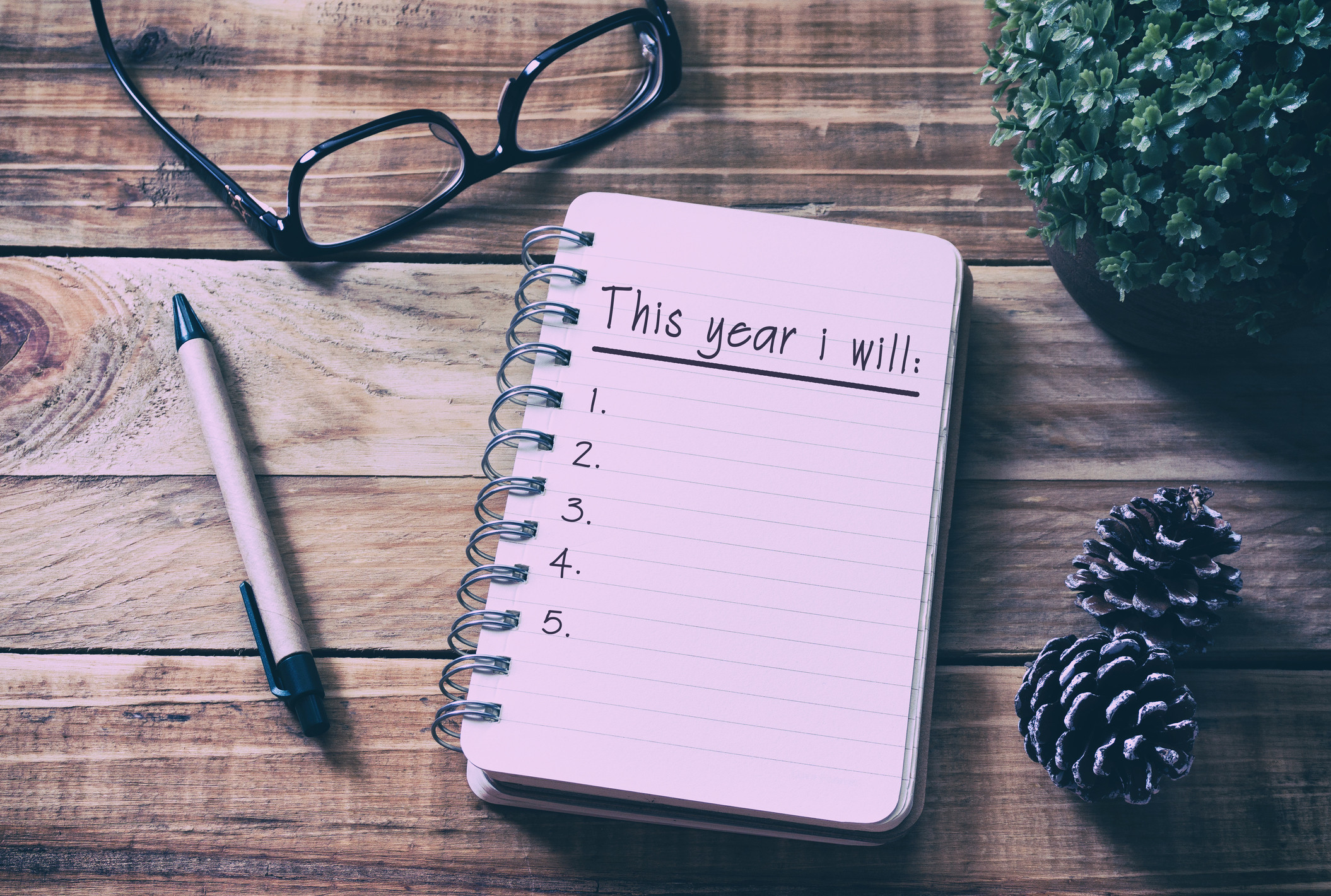We’re supposed to make resolutions now?

After everything that’s happened in 2020, setting goals seems like a big ask. Resolutions inherently mean discomfort and require resolve, and most of us have had enough of the former and don’t have much left of the latter. The response to the annual tradition might involve a collective groan, eye roll, and require a censor.
The question is, is it okay to take this year off?
“It’s always okay,�� says , clinical psychologist and lecturer in psychiatry at Harvard Medical School.
Why do we make resolutions?
Resolutions have their use in pushing us out of our comfort zones, but they aren’t required. Some people stick to them and benefit, but others have a different relationship with resolutions: they make them without any intention of keeping them, and repeat this cycle year after year.
Khazan says that the result can be almost like doing less than nothing. “It provokes shame and guilt,�� she says. “You’re not only not benefiting yourself, but you’re also kind of harming yourself.��
There’s no need for that. Resolutions should be based on two things: what you want to do and what you can do. You need to look at yourself, your schedule, your resources, and assess how full your plate is, and as Khazan says, for many people in 2020, “the plate is full.��
Not only that, but a person’s life could already include personal and professional loss, adds , director of the Spirituality and Mental Health Program at McLean Hospital and assistant professor of psychology at Harvard Medical School. Resolutions just don’t rank on the priority list.
But Rosmarin says that before completely dismissing the idea, think about just some of the challenges that have happened: Kobe Bryant dying in January, then COVID-19, school from home, racial unrest and protests, wildfires, “murder hornets,�� the election. It’s been a full year. “Consider how resilient we’ve been,�� he says. It can shift your mindset and make taking on a resolution not such a weighty thing.
Or your conclusion still might be, “Nope, I got nothing.��
“That’s totally valid. It’s not healthy to push yourself too hard, and you can take it off,�� he says.
But to do that also means not feeling guilty over what you should be doing. It’s one of the eternal traps, since we hold ourselves to impossible standards and are our own worst critics, Khazan and Rosmarin both say. One solution that they offer is to imagine a friend laying out the same scenario: feeling drained, needing a break, not wanting another to-do item at this moment.
When hearing those words, your reaction would probably be compassion and something like, “Of course, take a pass. You deserve it.�� Then, try saying that to yourself. And repeat it if necessary.
A different take
But Rosmarin says that while resolutions aren’t mandatory, the answer might not be in skipping them altogether, but in just making a tweak. One is to defer doing anything until the spring. “Give yourself a season to recover,�� he says.
There’s also taking a new perspective. The point of any resolution is to better your life in some way, so here’s one: just be kinder to yourself. If you’ve been able to let go of the guilt or shame over foregoing resolutions for the year, guess what? You’ve already succeeded. It’s the non-resolution resolution, Khazan says.
But Rosmarin suggests a couple more ideas. Take vacation time, or just an occasional afternoon off, to restore your energy and allow other things into your head rather than worry. Write down one accomplishment a day to see more positives than negatives, or just enjoy one piece of food a day for the joy of it.
These “resolutions�� have upsides. They don’t take much time. They don’t require equipment or a membership. They can always be done, regardless of shutdowns or restrictions. And “you’re creating a better relationship with yourself, which helps us to relate to others and the world,�� Rosmarin says.
And he has one more. When someone gives you a compliment or a gift, say “thank you,�� and that’s all. You don’t say “stop it�� or “you shouldn’t have,�� the natural inclination, which fails to acknowledge ourselves and dismisses what the other person just shared. “Saying ‘thank you�� means accepting that maybe, just maybe, you’re worthy of attention and value,�� he says. “Also, it creates more connection. What’s wrong with that?��
About the Author

Steve Calechman, Contributor
Disclaimer:
As a service to our readers, �첩���� Publishing provides access to our library of archived content. Please note the date of last review or update on all articles.
No content on this site, regardless of date, should ever be used as a substitute for direct medical advice from your doctor or other qualified clinician.
















